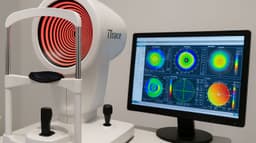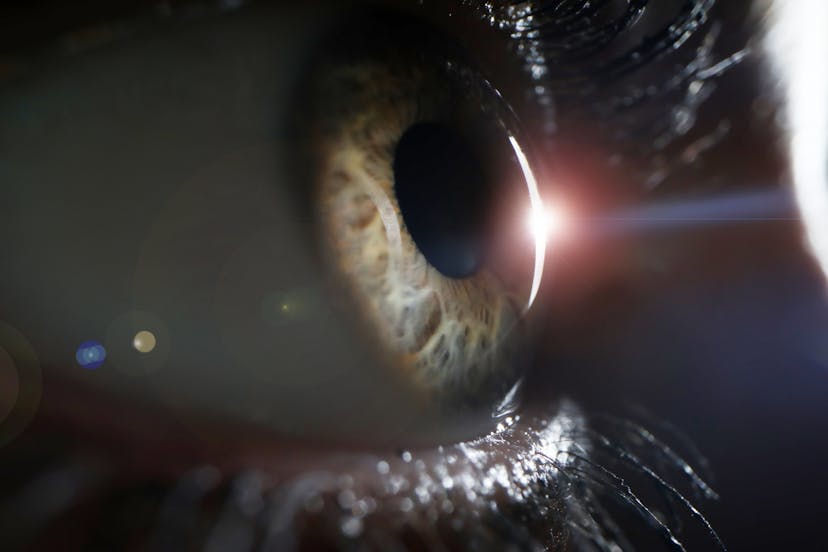
What Is The Best Treatment For Glaucoma?
Preserving Vision, Conquering Glaucoma
Exploring the Best Treatments for Glaucoma
Glaucoma, otherwise referred to as the "silent thief of sight," is a collection of eye conditions that can result in irreparable nerve damage, resulting in visual loss. Considering this chronic eye condition has the ability to gradually damage vision without causing apparent symptoms, early identification and treatment are critical in treating it. In this article, we will look at the numerous glaucoma treatment methods, examining their effectiveness, advantages, and drawbacks. You can make informed choices about controlling the condition and protecting your eyesight by learning about the best glaucoma treatments
Medications: The First Line of Defence
Prescribed eye drops are often used as the initial line of therapy for glaucoma. These drugs function by lowering the pressure inside the eye (IOP), which is the main contributory factor for the advancement of glaucoma. For many individuals, medications can successfully decrease eye pressure (IOP), delaying the progression of the condition and maintaining vision. To assess the success of the treatment, it is essential that you use the eye drops as directed consistently and to follow up with regular visits to your glaucoma eye care specialist. Here at My I-Clinic, we have a team of experienced glaucoma specialists, book your comprehensive consultation today to discuss your condition.
Laser Procedures: Advancing Precision
Laser procedures have transformed glaucoma therapy by providing focused and less invasive solutions. The following are two regularly implemented laser techniques for glaucoma:
Selective Laser Trabeculoplasty (SLT)
SLT increases fluid drainage from the eye, lowering the eye pressure (IOP). The procedure is often done as an outpatient treatment and can give long-term IOP management.
Laser Peripheral Iridotomy (LPI):
This procedure is mostly carried out to treat a form of glaucoma known as narrow-angle glaucoma. LPI improves fluid outflow and reduces the risk of abrupt spikes in IOP by developing a tiny hole in the iris.
Laser therapies are usually considered to be safe, efficient, and well-tolerated. They can be beneficial as stand-alone procedures or in conjunction with medication, giving glaucoma patients more alternatives for therapy.
Restoring Balance Through Surgical Interventions
If medication or laser techniques are inadequate to manage eye pressure (IOP), surgical operations may be required. Among the surgical options for treating glaucoma are:
Trabeculectomy
Trabeculectomy surgery includes the formation of a new drainage channel to allow fluid outflow and lower the pressure of the eye IOP. Trabeculectomy is a highly efficient procedure, although it involves a slightly increased risk of complications and necessitates thorough post-operative care.
Glaucoma Drainage Implants
These implants, commonly referred to as glaucoma tubes or shunts, are implanted to direct fluid out of the eye and manage the overall pressure of the eye (IOP). Glaucoma drainage implants are usually reserved for more severe types of glaucoma or when other therapies have been deemed unsuccessful.
Minimally invasive Glaucoma Surgery (MIGS)
MIGS (minimally invasive glaucoma surgery) refers to a group of new surgical methods that provide a less intrusive approach to glaucoma therapy. These treatments frequently involve the placement of small stents or devices to increase fluid outflow and reduce IOP. MIGS treatments have grown in popularity because of their high safety profile and short recovery durations.
Combining glaucoma treatment options: A Multi-Faceted Approach
A combination of medications may be required in some cases to adequately control glaucoma. Medication, laser treatments, and/or surgical procedures may be used in a customised treatment plan tailored to your unique needs. Combination therapy can improve eye pressure (IOP) management, especially when the condition becomes severe or resistant to single-treatment approaches.
When it comes to the finest glaucoma therapy, a personalised approach is necessary. The type and severity of glaucoma, specific patient attributes, and the advice of an expert ophthalmologist all influence therapy selection. The objective remains similar, whether by drugs, laser treatments, surgical interventions, or a mix of approaches: to manage eye (intraocular) pressure, detain disease development, and protect fundamental vision. By encompassing glaucoma treatment advances, we may pave the route to a future where vision prospers, unaffected by the obstacles of this complicated eye condition.
For expert eye care treatment, contact our dedicated team at My-iClinic on 0208 445 8877. Our glaucoma ophthalmologists are here to help mitigate the progression of glaucoma symptoms with state-of-the-art treatments for your wellbeing and future vision.
Find out more by Speaking to our team









